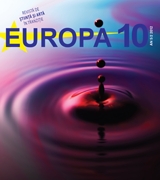EL FUNK DE RIO DE JANEIRO Y LAS COMUNIDADES IMAGINADAS: entre la prohibición por ley y la pacificación por la guerra
The Funk of Rio de Janeiro and the Imagined Communities: between the Prohibition by Law and Making Peace by War
Author(s): Ary PimentelSubject(s): Cultural Essay, Political Essay, Societal Essay
Published by: Fondul Europa
Keywords: favela; funk carioca; narco rhythms; music of the periphery; nation
Summary/Abstract: At a moment when the operations against the favelas continue and multiple urban interventions are performed in the city of Rio de Janeiro, to prepare the hosting of the Olympic Games and part of the Football World Cup Championship 2014, highlighting the staging of a narrative which is characteristic to a state of war with elite units of the Military Police, the Civil Police and army troops who enter communities with tanks and helicopters, it seems important to try to escape the media magic and shift the gaze to the critical discourses that present reality from the other side, where the absence of a State and the dominance of drugs generate another form of life. With a history of the formation process and the recent changes of one of the most powerful cultural manifestations of the Latin American peripheries (Funk Carioca) and with the analysis of some aspects featured by a corpus formed of letters, which include the tough and bloody data of the violent armed world, the assay tries to account for the importance of the Forbidden Funk or “Proibidão” in a study of the popular contemporaneous culture in Rio. It also tries to account for the metamorphosis of such a discourse in times of peace in the township of Rio, where the police behave with residents as an occupation army. The articulation of the discourse of the “forbidden” and the chronicles of the city with its criminal characters and simple inhabitants of excluded and segregated regions allows us to conceive a new text instead of staging a narrative fiction with the powerful role for the sociability of these territories. Reading this music which tells the experience of a world of drugs in the city of Rio de Janeiro (Brasil) seems an attempt to understand the phenomenon not as a police matter but as a development of representation processes from below, from the bottom.
Journal: Europa, revistă de literatură, artă, cultură şi tranziţie
- Issue Year: 2012
- Issue No: 10
- Page Range: 101-115
- Page Count: 20
- Language: Spanish

